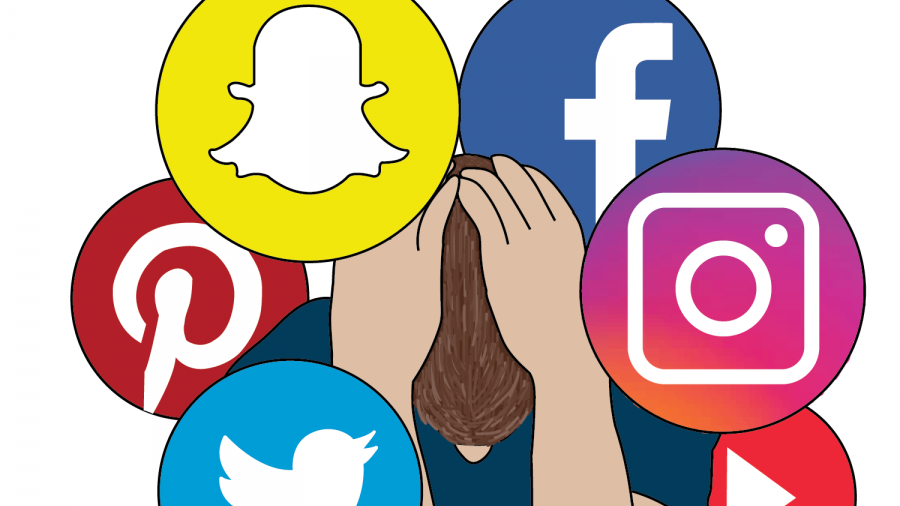Social networks have been established in our lives to stay. In the largest studies that have been done on social media, you can see that social media has a small negative effect on mood. So people who use social media feel a little worse afterwards than they did before. But it matters a lot what you do on social media.
More and more people are using TikTok, Instagram, Twitter, Facebook, WhatsApp or other social networks. However, although they can be a good resource to pass the time, if they are used in excess they can have serious consequences for the daily life of these people.
What happens when social networks affect our mental health?
Despite its great utility, in recent years, various studies in North America and Europe have found that the excessive use of social networks contributes to the increase in symptoms and mental health problems.
Since social networks constitute the virtual space where people interact and further develop or strengthen their relationships, many are affected in the way they perceive themselves and others outside of virtuality.
These are some of the main mental health problems that have increased with the excessive use of social media:
Sleep disorders
The excessive use of social networks has been associated with an increase in the appearance of sleep disorders, anxiety, depression and self-esteem problems, especially in the youngest, people between the ages of 16 and 26.
Cyber bullying
Likewise, the presence of other problems such as cyber bullying has also been identified , which is increasingly frequent among schoolchildren, university students and young adults.
Many of them admit to having participated in this phenomenon, either contributing to cyber bullying or being victims of it. In this sense, social networks have also become a space where many unload feelings of hostility and rejection towards other people, especially shielded by anonymity, the lack of clear limits and the little or no immediate consequence that this type of behaviour has online behaviour.
Anxiety and withdrawal syndrome
On the other hand, those who have difficulty controlling the use of social networks have constantly experienced symptoms of anxiety, due to the need to be constantly connected and thus keep up to date with what is happening around them.
This has even affected eating and sleeping habits, generating a sort of dependency in some people.
Low self-esteem
Among other effects of the excessive use of social networks, there is the negative effect among those people who use them as a kind of parameter from which they tend to compare themselves.
For example, being aware of the publications of friends who are enjoying outings or trips can generate in some people feelings of low self-esteem, anxiety and depression for feeling that they do not have the same achievements or experiences, or also for considering that what they have is not enough, compared to what other people show in a different situation.
Conclusions
More and more people of all ages use social networks and also spend a lot of time on them. Although they can have positive effects on our daily lives, we must be careful because excessive use can cause various psychological consequences, such as: anxiety, depression, dependency, low self-esteem, etc.



